##=##=##=##=##=##=##=##= BOOKS^•^ =##=##=##=##=##=##=##=##
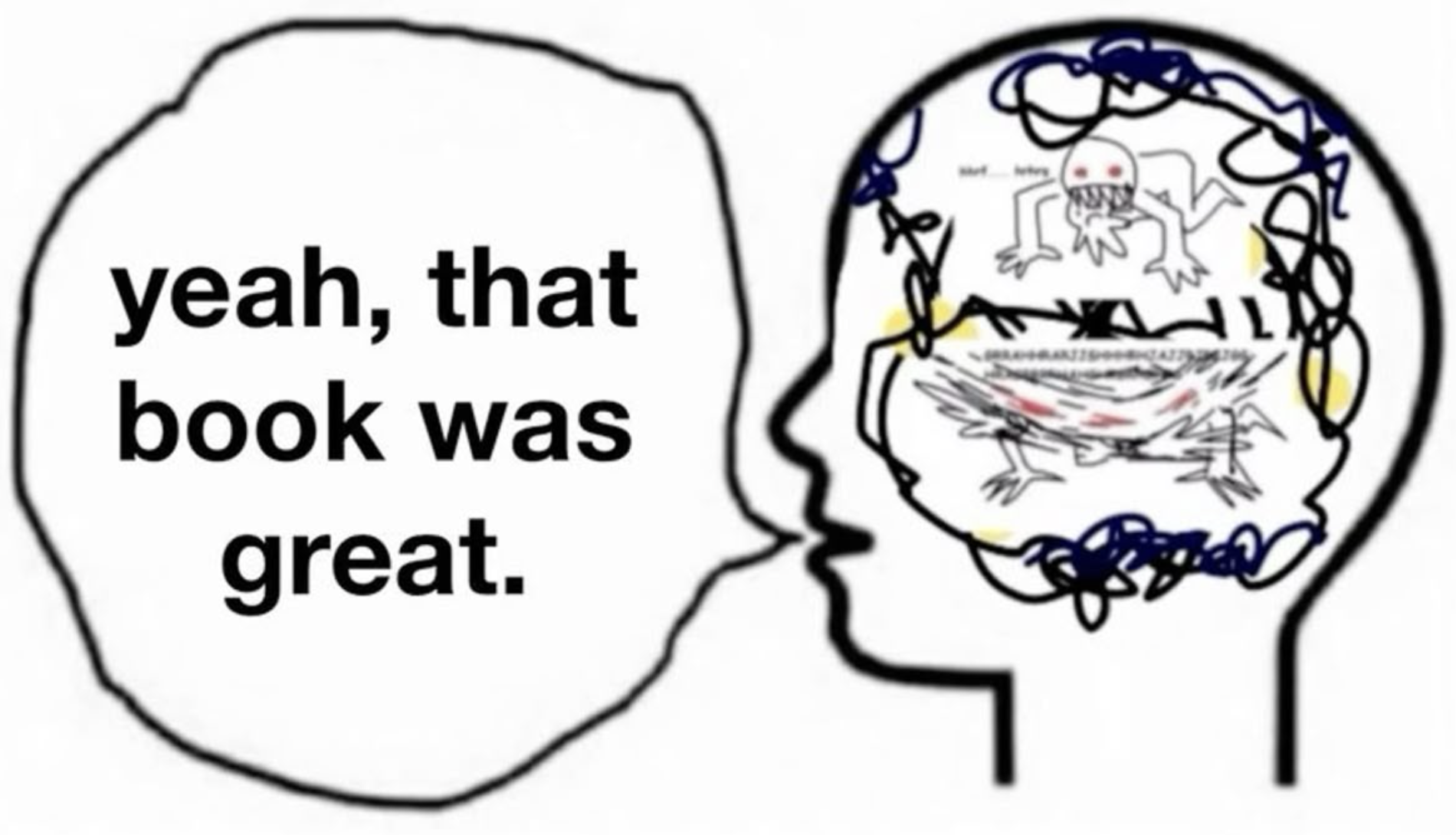
possum is currently reading:
CHESS STORY \\ Stefan Zweig
THE BOOK OF DISQUIET \\ Fernando Pessoa
books in queue:
ONE FLEW OVER THE CUCKOO'S NEST • PALE BLUE DOT
review updates:
Hi. i LOVE literature. If you want to talk about any of the books you see below PLEASE talk to me.
The types of books i'm always on the lookout for are strange, bizzare, disturbing books with ethereal writing and delves into psychological/philosophical themes. if you have a book in mind that i might be interested in, i BEG YOU to recomend it to me. Look into the pitiful eyes of the possum in the corner. I'm BEGgINg you (with love)
Note for further scrolling: If there is a bookbug club button above the title, that means that that book was a club's pick and you will find a duplicate of that review in my bookbug page.
Curious about what books i'd like to read in the future? click here
> PERFUME
> NAKED LUNCH
> NAUSEA
> DESPAIR
> SPEAK, MEMORY
> ADA, OR ARDOR
> THE HOUR OF THE STAR
> A BREATH OF LIFE
> PANENKA

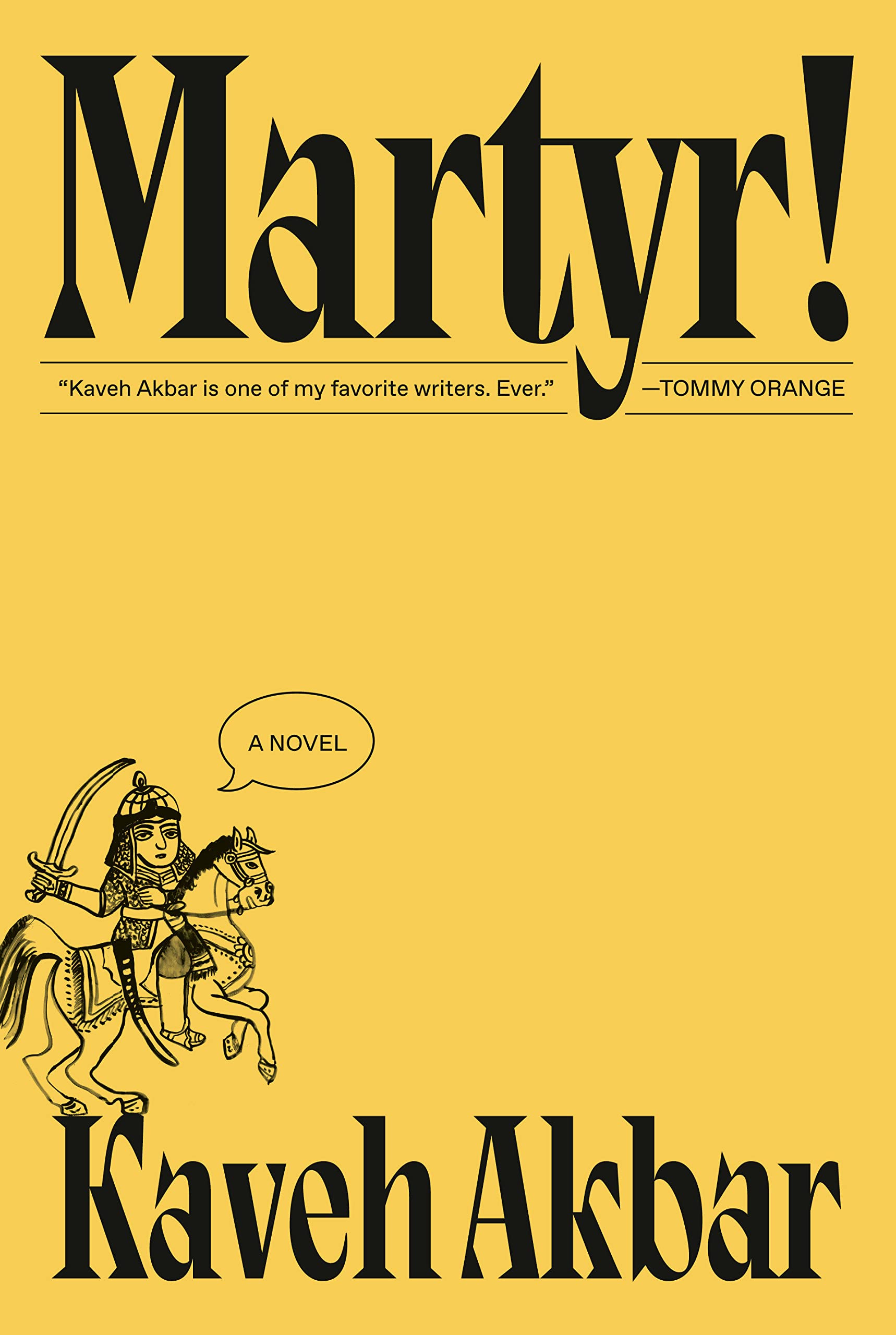
• MARTYR! •
KAVHEH AKBAR
Year published \\ 2024
Read \\ Jan.26.2026
One of my favourite books ever. It is prose written by a poet, a story written by someone who truly knows what it's like to be human. My, what a beautiful book, I think you're lucky if you get to experience it for the first time.
THOUGHTS!! ^•^
“Expendable” may seem a bad word to use to describe your own life, except I actually find it liberating. The way it vents away all pressure to become. How it asks only that you be.
This has got to be one of my favourite books ever. The writing is so unmistakenly human -- it feels so real, so alive, both Akbar's writing style and the themes he writes about. It's no surprise that he originally wrote/writes poems.
All of the characters are so fucking interesting, they have so many layers to them, I love love love the attention Akbar gave to each of their personalities, identities. Cyrus, Zee, Ali, Roya/Orkideh, Leila, Arash. I love them. I found bits of my own dad and even myself in Ali. There was a section in the book about how Ali thinks too slow, that when he comes up with the perfect thing to add to a conversation, the moment's already long gone. I related so hard to that feeling. I'm too lazy to search for that passage rn.
I could go into so much detail about all the characters, the themes, the story... but tbh I don't want to lmao. There's way too much in my mind to unravel at the moment. Some thoughts and feelings will just die with me in my head.
I will definitely want to read Akbar's next novel. I love this guy.

• THE HANDMAID'S TALE •
MARGARET ATWOOD
Year published \\ 1985
Read \\ Jan.16.2026
A dystopia where the patriarchy won and women are essentially slaves... Atwood writes so beautifully and disturbingly about this poor woman's experience living in such an awful world.
THOUGHTS!! ^•^
Amazing book! Margaret Atwood is such a great writer. I watched a couple interviews from her and I just really admire her. I'm so jelous of my friend who met her on the streets of Toronto!
The Handmaid's Tale was very uncomfortable to read but necessarily so. When many people talk about this book or really any dystopian book in general, they always highlight the problems of the regime, the system, the autocracy, which is all very crucial points to talk about. I, however, am more interested in the individual's experience facing such an opressive world. What struck me the most was Offred's grief. She lost everything for no reason, everything she has ever loved. It's so viscerally unfair. Eveything she had to go through -- for what? For nothing! It's scary what the people in power can do.
I think Atwood conveyed Offred's struggle and psychological state beautifully. Her writing tackles both the tangible and the abstract so effectively. I remember this quote the most:
I guess you get all my money, I said. And I'm not even dead. I was trying for a joke, but it came out sounding macabre.
Hush, he said. He was still kneeling on the floor. You know I'll always take care of you.
I thought, already he's starting to patronize me. Then I thought, already you're starting to get paranoid.
Here is one of her interviews, I think she's a very intelligent, awesome person.

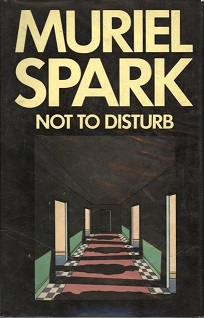
• NOT TO DISTURB •
MURIEL SPARK
Year published \\ 1971
Read \\ Jan.11.2026
An odd little novella. Something strange is going on in this household--what are the servants plotting?
THOUGHTS!! ^•^
First bookbug book in 2026! Glad this one was short because January is the busiest and least-favourite month for me. Was considering skipping this one but good thing I didn't.
Overall, I can definitely say I enjoyed this read. I got use to the all the characters and found their conversations pretty entertaining. I don't think I ever read a book with that much dialogue and while I was reading I kept imagining the scenes in the format of a play, with one camera angle and a stage. The servants' personalities were well-written and I wouldn't have minded getting to know them more but I'm glad this book didn't bloat itself. Some premises are meant to stay novellas and I hate it when authors feel the need to stretch it out for 300 pages.
I don't know why but I really love the types of stories that withold important information from the readers and leaves us guessing what could possibly be going on and what their motive could be. This book feels like I'm intruding on a conversation I'm unwelcome to witness, even as a reader. And towards the end, we STILL don't have a clear answer on what their scheme is but it doesn't bother me that much.
Clearly, the servants are trying to inherit the Klopstocks' money, and the Baron seems to be in on it (?) There is talk of some script, that it was planned, and the servants say they know what happens in the library: the Baron shoots his wife and her mistress (her mister? what's the word?) and then shoots himself. So the Baron must have known beforehand. Did the Baron know that the servants knew? The servants talk about how it was all Lister's clever plan or something. Maybe Lister read some sort of suicide note, the "script", and then planned how to aqquire the inheritance and avoid suspiscion from the police. If the Baron and the servants disucssed it together: why? Anyway I'm writing this review while feeling a little nauseous so I don't feel like writing anymore. I have too many questions with this book and it's making my head hurt.
Fun little novella, I liked it.
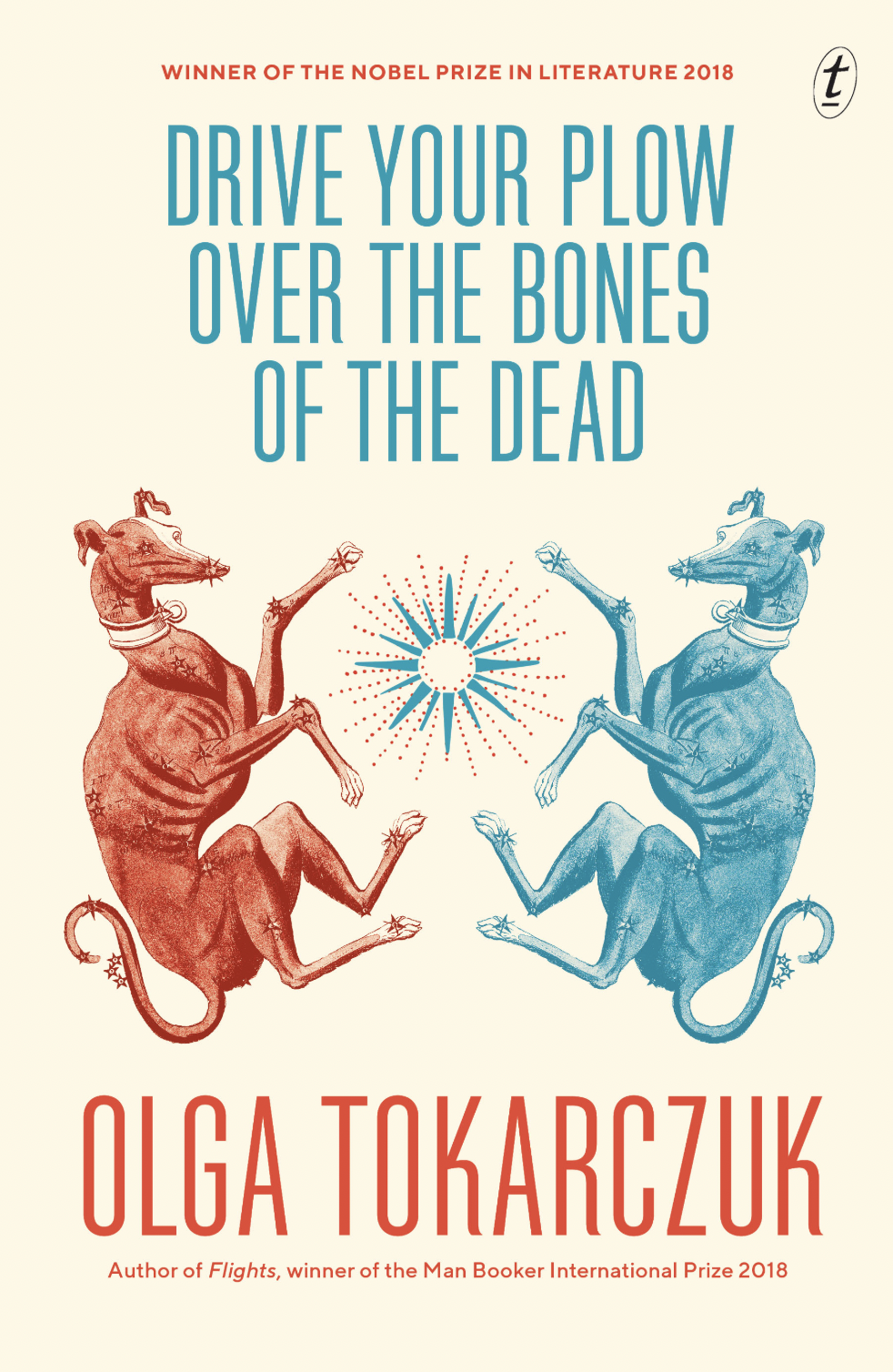
• DRIVE YOUR PLOW OVER THE BONES OF THE DEAD •
OLGA TOKARCZUK
Year published \\ 2009
Original language \\ Polish
Translator \\ Antonia Lloyd-Jones
Read \\ Jan.05.2026
In a wintry town in Poland, hunters keep turning up dead, and this eccentric, old woman is convinced she knows whodunnit.
THOUGHTS!! ^•^
I really enjoyed this book. I was very intrigued by the title and spontaneously decided to walk to my library to pick it up as the app said that it was available on the shelf. Such an interesting first read of the year!
I loved Janina's character so much (she would hate me calling her that lol). I feel like old women don't get much represntation in literature as being the main protagonist. I really adored her passion for protecting animals and how she doesn't let anyone's opinion of her make her doubt herself. She is confident, fiery, and cares a lot. God, I love people who are passionate. In a way, I really aspire to be like her when I reach her age. She's so unafraid to be herself.
Janina's friends are also wonderful. For some reason, the books I usually read never have any true friendships so I always get super happy when I see two characters who genuinely enjoy each other's company. Oddball, Dizzy, Good News, and Boros are all great people who care for Janina and vice versa. Despite being a complete introvert, ("'I feel like you like animals more than people'"), she does truly enjoy spending time with nice people.
The plot's very good and it was written very well. The book opens with Janina and Oddball going to check up on their neighbour, who turns out to have choked on a deer bone and died. Throughout the book she is convinced that the neighbour's and all the other hunters' death was caused by the animals finally getting their revenge. The ending was amazing! It turned out that Janina was the one killing the hunters, acting in the name of animals. She was their Tool (with a capital T.) And the photograph turning out to be the hunters posing with her beloved dead dogs... that reveal filled me with sorrow.
But the truth is, anyone who feels anger and does not take action merely spreads the infection.
I absoloutely loved this story. I might get to reading more of Olga's works sometime in the future.

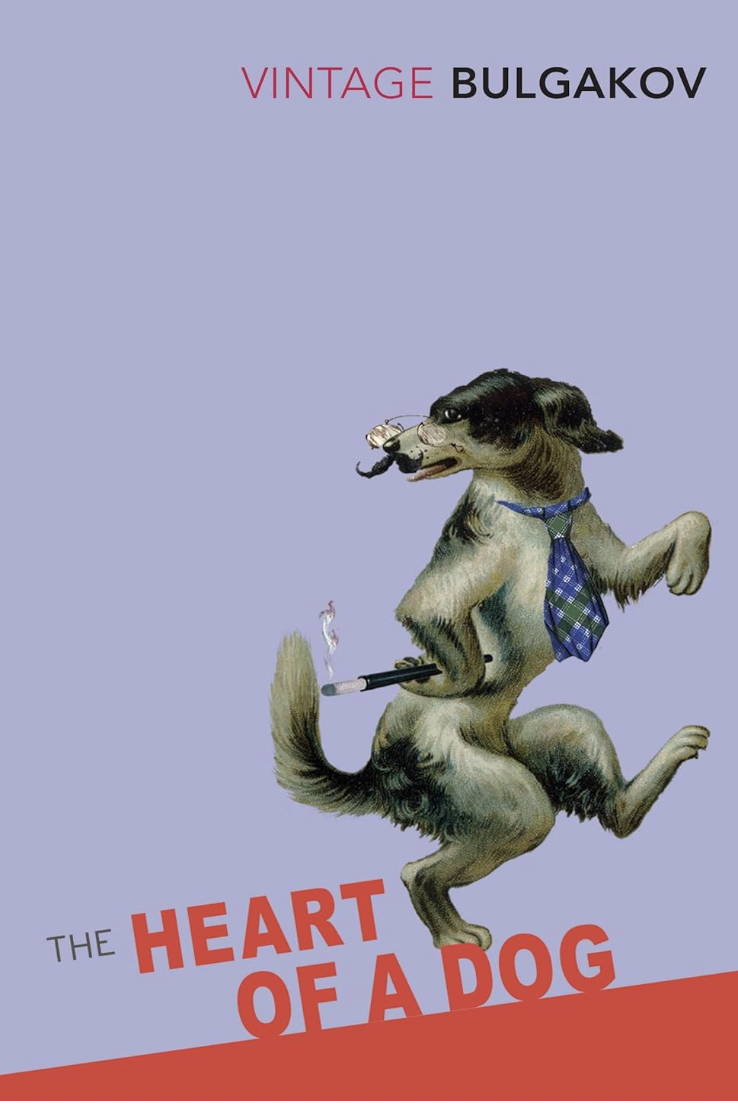
• THE HEART OF A DOG •
MIKHAIL BULGAKOV
Year published \\ 1925
Original language \\ Russian
Translator \\ George Szirtes
Read \\ Dec.12.2025
An experiment gone wrong... what happens if a dog were to look human but remain an animal?
THOUGHTS!! ^•^
Writing this review three weeks after I read the book so I forgot some of the things I wanted to say... I should have written this immediately. School and winter are taking a huge toll on my sanity, spring is taking too long to come rescue me!!!!
To put it briefly, I really enjoyed this book. It's hilarious. And shorter than I thought it would be. I read this on an e-reader and unfortunately downloaded a version with the damn worst formatting I've ever seen. I had to mentally fill in some missing letters every now and then, which sucked, but my bumcheeks library never has any of the books I want so what was I to do? Anyway,
My mom recommended this book to me after we watched and discussed the recent, disappointing movie adaptation of Frankenstein. She told me that I would love A Dog's Heart (or The Heart of a Dog?) and that its movie adaptation had the perfect actor playing the dog. Didn't watch the movie in full but I can confirm she was right about that.
About the actual book.. I love Bulgakov's humour and I love reading about absurd situations. I read and loved The Master and Margarita and was pleased to see his style again. I was very interested in The Heart of a Dog's premise -- a dog accidently being turned into a human being, (at least, resembling one), while still retaining his animalstic urges, behaviours, and habits. Everything that happened after was very amusing to read about.
Now, this whole thing is obviously a commentary on the society and politics of Bulgakov's time -- specifically, communism and the soviet regime. I won't go into detail about the symbolism and about what each character/situation is supposed to respresent in the real world. I don't know enough about that era of eastern Europe to qualify telling you about all this book's implications, but I've had lots of fun on YouTube watching videos about everyone's takes on the story and learning more about the author's life. What I love about this book is all the different interpretations people can make on The Heart of a Dog.
I'm gonna end the review here. I definitely enjoyed this novella and it only reassured my opinion of Bulgakov's works. He's a controversial person, (saying this as someone whose parents are Ukranian immigrants regarding his anti-Ukranian sentiments, despite him having grown up in Kiev,) but a very good writer. I may read another novel of his in the far future. Happy New Years, by the way :)


☆ THE MELANCHOLY OF RESISTANCE ☆
LÁSZLÓ KRASZNAHORKAI
Year published \\ 1989
Original language \\ hungarian
Translator \\ George Szirtes
Read \\ nov.19.2025
Everything decays. Beautifully written, hard to put what it's about into words. My favourite read of the year, maybe ever.
THOUGHTS!! ^•^
Wow. What a book. I don't even know where to begin, there's so much to unpack. Should I go chronlogically? Should I first talk about what striked tme the most? First of all, a month ago I had no clue the book, nor this author existed at all. I didn't even vote for this book in the club's poll so TMoR basically just fell into my laps. Thank god for that.
My first impression of this book, after I read the first chapter, was that it was super atmospheric. It felt like exactly it was late november -- frosty windows, gloomy skies, leafless trees, snowless ground.. The first scene in the train was very uncomfortable, and I think that that moment with the man slapping the old lady was a perfect introdution to the cruel, lawless world the story takes place in. I felt immense relief when Mrs. Plauf returned to her flat and the author rewarded me with cozy descriptions of her home. It felt so nostalgic -- reminded me of my slavic grandmother's appartment. I was hoping the story would revolve around her because I was so far really fond of her character.
With this book I discovered that I really enjoy apocalyptic books. It reminds me of Cormac McCarthy's The Road becaue of its desolate feel. But what I like about TMoR is that the apocalypse revolves around human-made destruction, societal collapse. There is no supernatural force driving the village to ruin, it's only themselves. To me that is scarier than some sort of hell opening up to swallow the earth.
I felt that throughout the book there was a recurring theme of meaninglessness(?) in life. I think that maybe that's what angered the people and what drove the mob into chaos. My brain's a little bit foggy and I'm having trouble piecing things together but something about the act of destruction was enchanting good people and somehow comforting them about their insignificance. I don't know, I will definitely give this book a reread because there are so many things I know I missed, so many connections I didn't make. Even with my half-understanding of the book I feel that it's very clever and will take another sit-through to fully comprehend. I didn't understand what it was exactly that drove my beloved Valuska to get swept with the mob. Maybe he thought that his love for the cosmos was actually silly and naive and that to embrace the chaos of the universe was what he was meant to do as he himself is a product of that chaos. Maybe it brought him reassurance about his meaningless existence and he succumbed to the force of entropy.
I think now's a good transition into what I think is the "melancholy of resistance". Because I don't think that Valuska's idea of space is silly. I thought it was super sweet, that here we have this man living an arguably miserable life in a horrendous village, but despite his enviroment he refused to live a life of misery, and instead he spends his time with his friend and being enamoured by the beauty of celestial systems. Naive, sure, but a necessary kind of naive -- a survival strategy. A resistance against the uncaring world around him. Same with Mr. Eszter -- I believe he went into retirement after find out that music was based on faulty calculations or something like that, and no one cared but him. looking at music as an objectively faulty system ruined the art for him. But at the end of the book he is heard playing on the piano. I think he realized that dwelling on music's failures brought no use. He simply played for the sake of its beauty.
At some point you must give up trying to make sense of the world and live for the sake of living. Resist against the chaos, even though there is ultimately no point.
? I think that's the message i got from TMoR. I don't know. There is so much more I want to say about the book but i think I'll leave it as is. Overall, stunning book. I can confirm that it's my favourite.
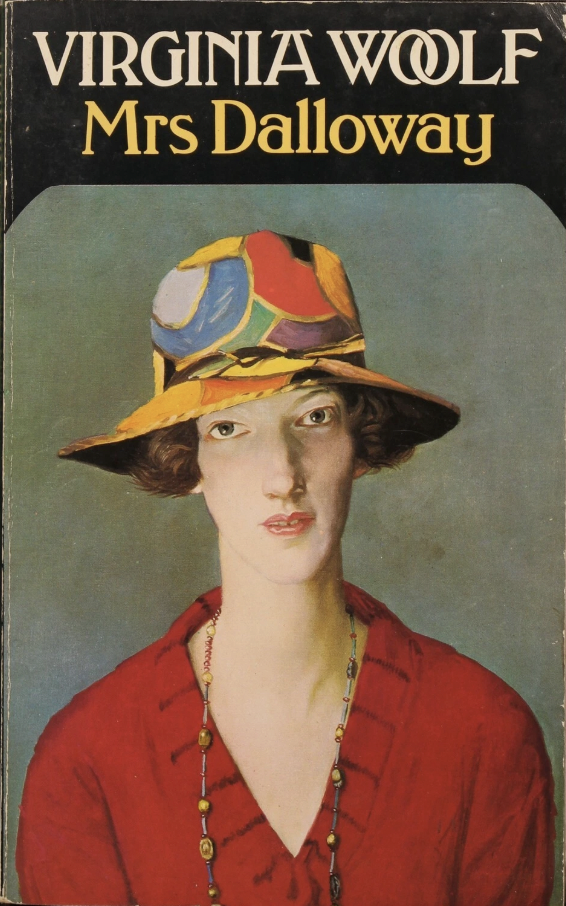
MRS. DALLOWAY
VIRGINIA WOOLF
Year published \\ 1925
Read \\ nov.12.2025
SPOILER-FREE REC:
A day in the life of a woman as she prepares for her party -- recounts her memories of the past and of all the people in her life. I think it's a genuinely good book, however it didn't click with me as I was rushing to finish it due to the excitment of wanting to read another book(?). I would watch this video on youtube, made by someone who's really passionate about Mrs. Dalloway and I really admire her love for the book. She does a very good job at talking about the themes you'll find in it.
THOUGHTS!! ^•^
Sooooo a big mistake I keep making is that I start another book before finishing the one I'm currently reading. To me this is a giant catastrophous event because I've ruined the book I was originally reading. I began reading Mrs. Dalloway and was really enjoying it, but then I started The Melancholy of Resistance, a book I was REALLY liking, liking a lot more than Mrs. D, so I really couldn't properly finish Mrs. D because I was always thinking about how much I wanted to read TMoR. So unfortunately I was a little bit absent when reading it. I skimmed the end just to have it finished, even though I genuinely wanted to properly read the ending. Oh well, I'll definitely return to it in a few years and give it the attention it deserves, because I still do think it was a good book.
Because of this personal, utter disaster of mine, I don't have many thoughts to share right now, other than that my favourite character was Septimus. I think Woolf wrote his character really well (i think she wrote all the characters really well, all which such distinct and though-out personalities). I saw Septimus's suicide coming and poor guy.
I am very tired right now and I don't really feel like writing anything else at the moment. I wish I could have given this book more love.


THE COLLECTOR
JOHN FOWLES
Year published \\ 1963
Time read \\ oct.2-oct.9 2025
SPOILER-FREE REC:
A rich guy collects butterflies as a hobby, and it seems like he has his eye on a certain specimen -- a beautiful woman. All he wants is to keep her. What I liked about the book was that it explored the relationship between a kidnapper and a kidnapee and it touches on the unfortunate subject of dehumanisation. I finished the book very quickly -- the plot hooked me, especially when it got to Part 2. I think it's a good book!
THOUGHTS!! ^•^
I devoured this book. It was really entertaining and the story succesfully hooked me. Especially because I have been reading a lot of plotless/vibe-based books lately -- the last two books I read were Lispector's so it was a nice refresher to read something with more structure.
My favourite section was Miranda's diary. I did not expect that we'd get to see her perspective but I'm really glad we did. Even though it repeats the same events we already read about through Fredrick's POV, I found it very interesting to find out how M saw things and how the two characters percieved the same situation. Also, the transition between the two POVs was quite startling. What I mean is that for about a hundred pages we're in the mind of this "totally chill guy" who wrote his thoughts with proper structure and novel-like format, (yes yes i know that's because it's a novel) and nothing was "off" about his writing. It was like F was convincing us that we shouldn't take the situation seriously. That it's all normal. And then all of a sudden the mood switches and M writes with short, incomplete sentences and repeats many phrases. It really striked me. The poor girl was really, really, truly suffering in there. I don't know how to explain it but there the book took on a more frightening, desperate note. Kudos to John Fowles for effectivley giving me a shock and for giving M a voice.
My only complaint is that I was a little bit disappointed with the ending. While reading the book I was always thinking Is F going to set her free? Is he going to kill her? Is there any redemption in him at all? and How will M fight back? Will she see her family again? Will she accept the situation? However none of those things happened. M just got an illness and died. The author completely avoided writing the conclusions to his characters' development. I felt like something should have happened. M didn't deserve that end and F didn't deserve for the situation to resolve itself. I guess in a way he did actually kill her. Maybe I'm being being a little biased -- maybe that was the author's point. Bad things happen to good people. Good things happen to bad people. Fate can make its own decisions. I dunno. I'm curious to hear other bugs' opinions on this.
Last point I want to make is that I realized that many authors make the connection between collecting butterflies and psycopathic behaviour. And by "many authors" I mean Vladimir Nabokov, my beloved. He was obsessed with that theme and it was evident in the two books of his that I read, Lolita and Pale Fire. I guess Fowles saw the symbolism in it as well.
I didn't collect any quotes because oops. Anyway, this was overall a great read and I'm glad I read it. Didn't even know this book existed until the club's october poll.


THE APPLE IN THE DARK
CLARICE LISPECTOR
Year published \\ 1961
Original language \\ Portugese
Translator \\ Benjamin Moser
Time read \\ sep.8-oct.5 2025 [dnf]
SPOILER-FREE REC:
This book is understandably not for everyone. The plot is barely existant and the writing is drawn out. However, I did actually kinda like this one, even though i dnf it. If you want to step into Lispector's world I reccomend choosing another book, especially one that is shorter lol. But I don't regret picking this one up. Read at your own risk.
THOUGHTS!! ^•^
Hmm... strange book... Although I DNF this one I will admit that I actually did like it for some reason. It's very slow and it was nice to read after coming home from a long shift. I read 3/4 of it before I said to myself that I should leave it. I wanted to finish it, though. I stopped after Martim and Vitoria's conversation by the tree that was meant to be chopped down.
This one was a bookbug pick in the past and it seemed like the majority of members really did not like this one. I understand why. It's mostly based on writing about nonsense, (or at least, what feels like nonsense to readers,) and the plot is paper-thin. The premise is interesting, in my opinion--guy on the run after a crime but we never find out what the crime is. Under a different author I feel like this book could've been widely beloved.
I liked the moment on p.44 where Martim realizes he accidently killed the bird. I like subtle symbolic moments like that. I was hoping that was the route the story would take. On another note, I thought Ermelinda's character was interesting. She said something I understood, something I felt at some point in my life:
--Look at this fern! she said to the man because a person can't say "I love you."
It's hard to extract phrases from Lispector because everything she writes comes from what she wrote before(?) so this quote on its own sounds incomplete. But anyway, I related to this. I say to my best friend, "The sunset is beautiful," and when I say this, what I'm really saying is that she means a lot to me.
But my favourite quote comes from Martim who bursts,
--We don't know where we come from and we don't know where we're going, but we experience, we experience! and that's what we've got, Ermelinda, that's what we've got!
I wholeheartedly agree. Dare I say it's my life philosophy. Anyway... overall I kinda like this book but my impatience overcame me.


AGUA VIVA
CLARICE LISPECTOR
Year published \\ 1973
Original language \\ Portugese
Translator \\ Stefan Tobler
Time read \\ approx. july.2025
SPOILER-FREE REC:
Do you like beautiful writing? This "poem in prose form" is an 88-page-long stream of conciousness touching on themes of time, life, death, and personal exploration. This is currently my favourite book and there is one condition if you want to read it: don't annotate and don't try to make sense of it. Just float down the river with Lispector as she attempts to capture the "instant-now."
" Let me tell you: I'm trying to seize the fourth dimension of this instant-now so fleeting that it's already gone because it's already become a new instant-now that's also already gone. Everything has an instant in which it is. I want to grab hold of the is of the thing. These instants passing through the air I breathe: in fireworks they explode silently in space. I want to possess the atoms of time. And to capture the present, forbidden by its very nature: the present slips away and the instant too, I am this very second forever in the now. "
THOUGHTS!! ^•^
I knew this book would become my favourite before I even finished it. It's so enchanting and hypnotic, my only regret is that I didn't spread the reading out so that it could last longer. I first approached this book with a pen as my bookmark so that I could make notes on it and try to "figure out" what was going on. That was a mistake. It was exhausting and an impossible task because there was nothing to figure out, there was just there. So about ten pages in I read
" What I tell you should be read quickly like when you look. "
and I realized that she was right. It felt like Clarice was trying to imitate the speed of thought and I was betraying her mission by lingering, so I put the pen down. And it is better to read this book that way, in my opinion, and I had more fun. Here's my favourite quote:
" I may not have meaning but it is the same lack of meaning that the pulsing vein has. "


100 YEARS OF SOLITUDE
GABRIEL GARCIA MARQUEZ
Date published \\ 1967
Original language \\ Spanish
Translator \\ Gregory Rabassa
Time read \\ approx. aug.2025
SPOILER-FREE REC:
This book COMPLETELY warps your sense of time. It feels like a fever dream. I think six (?) generations go by in these 400 pages so you can imagine how disoriteningly fast time goes by. In an "about the author" article I read, it said, paraphrased, that when Gabriel Marquez was a child he would listen to many of his grandparents' stories and that they told the logical ones with the same expression as they told the magical ones. I can definiteley see how those childhood stories affectes Marquez's writing because in this book there is a thin, thin border between reality and fantasy. If you'd like to read a surreal story where the main character is essentially a last name, this book's for you.
" Many years later, as he faced the firing squad, Colonel Aureliano Buendia was to remember that distant afternoon when his father took him to discover ice. "
THOUGHTS!! ^•^
I actually really liked this book. It reminds me a lot of Wuthering Heights because both of their plots are centered around a certain bloodline and house(s). My favourite part of the book was the section about the war, I think my fav character might've been Colonel Aureliano. I thought his character was interesting because I love to read about a good descent into madness and a slow corruption. It was sad to see how he let that friend of his get killed, and I like this quote said by Aureliano's other close friend.
" "Watch out for your heart, Aureliano," Colonel Gerineldo Marquez would say to him then. "You're rotting alive." "
I was happy to see Colonel Aureliano finally get back to himself and decide not to kill his best friend. I also really loved how the author writes about the characters' deaths -- they're all so strange and bittersweet, especially Arcadio's and Amaranta's.
" In the shattered schoolhouse where for the first time he had felt the security of power, a few feet from the room where he had come to know the uncertainty of love, Arcadio found the formality of death ridiculous. Death really did not matter to him but life did, and therefore the sensation he felt when they gave their decision was not a feeling of fear but of nostalgia. "
In general I really liked the "crazy" situations that the author sprinkles in every once in a while. I wish we got more of that Jose Arcadio Segundo (the one who survived the massacre at the station.) Those few pages were disturbing -- J.A.S waking up next to thousands of corpses, having to crawl his way back covered in blood, and no one believing him. (By the way, what's with all this memory loss in the book and how characters don't believe any events that happened not even remotely in the past? It really reminds me of Nineteen Eighty-Four and the idea that the past doesn't exist and it can be manipulated as easily as people's minds can be manipulated.) The paralels/references are also something I really liked and that Ursula's right, that it really does feel like time goes in circles and eventually repeats itself.
" When he recognized his great-grandmother's voice he turned his head toward the door, tried to smile, and without knowing it repeated an old phrase of Ursula's.
"What did you expect?" he murmured. "Time passes."
"That's how it goes," Ursula said, "but not so much."
When she said it she realized that she was giving the same reply that Colonel Aureliano Buendia had given in his death cell, and once more she shuddered with the evidence that time was not passing, as she had just admitted, but that it was turning in a circle. "
Overall I really liked the book, even though it was hard to get through all that pedophillia and incest. In a small way I see this book as a warning not to repeat the past's mistakes (don't have kids with your damn cousins!) as it, and everyone's ignorance towards the past (and towards themselves and others), eventually contributed to the downfall of Macondo and/or the Buendia bloodline.
" [...] everything written on them was unrepeatable since time immemorial and forever more, because races condemned to one hundred years of solitude did not have a second oppurtunity on earth. "

**The reviews below are old, taken from my personal journal and written before i had a website to log them. Because they weren't intended to be seen, they are undetailed and not a true representation of my thoughts and are therefore meant to be forgotten by you if read. However, any recs are recent and genuine!**


THE CATCHER IN THE RYE
J.D. SALINGER
Year published \\ 1951
Time read \\ approx. july.2025
UNSEASONED THOUGHTS
finished the catcher in the rye, i really liked it! he's such a negative person but i relate to his uncertainty about the future. i wish he found out where the ducks go when the pond freezes over.

PALE FIRE
VLADIMIR NABOKOV
Year published \\ 1962
Time read \\ approx. june.2025
SPOILER-FREE REC:
Amazing "unreliable narrator" type of book. The unconventional composition of this piece of fiction is interesting--it consists of an introduction by the character C. Kinbote, a 100-line poem by J. Shade, Kinbote's commentary on the poem (the main part), and an index (don't skip the index!). Except, the commentary isn't what you think it'll be about. While you uncover details about the lives of these two characters, I strongly suggest you take notes. Solving puzzles are fun, especially when they're beautifully written.
" I was the shadow of the waxwing slain
By the false azure in the windowpane;
I was the smudge of ashen fluff--and I
Lived on, flew on, in the reflected sky. "
UNSEASONED THOUGHTS
[...] also i just finished pale fire IT'S SO GOOD. i think nabokov is currently my favourite author; he writes so beautifully and about such strange subject matter, it's bold. pale fire has such an interesting and unique composition, unlike any i've ever seen. i think he basically invented the genre "hypertext," i think it's called? i have house of leaves on my shelf i'll give it a read towards the end of summer maybe. when i finished pale fire i was so confused and didn't understand anything of what i read. afterward i watched a youtube vid explaining the "plot" and the "meaning" of the book and it's just so damn clever!! i'm so devastated that i didn't figure it out on my own. my biggest regret in life is that i didn't take notes on pale fire. i hope i'll forget its contents in a few years so that i can revisit it and annotate the book and try to "solve" it myself. i think my next nabokov book is despair and then ador or ardor. what a brilliant writer. i have to sleep now.

CATCH-22
JOSEPH HELLER
Year published \\ 1961
Time read \\ approx. may.2025
UNSEASONED THOUGHTS
i just finished catch-22 and loved it. like all long books, it takes a while to get into the rhythm of it. i think it took a week or two to get through the first half, and two days to finish the nexy half. i love it so much--it's comedic but doesn't fail to highlight the horrors/absurdity of war. it reminds me a lot of salughterhouse-five. all the characters were so unique and i got attached to a lot of them. it made me so happy to find out that orr lived.

WUTHERING HEIGHTS
EMILY BRONTE
Year published \\ 1847
Time read \\ approx. march.2025
SPOILER-FREE REC:
Read this one during early spring or late autumn lol. What stuck with me the most is the ambiance of the whole book. Wuthering Heights is a slow read with many detestable characters but it's all somehow very fun. You will like this one if you're a fan of classics with a somber mood, but good luck understanding what the hell Joseph's saying.
“ He wanted all to lie in an ecstasy of peace; I wanted all to sparkle and dance in a glorious jubilee. I said his heaven would be only half alive; and he said mine would be drunk: I said I should fall asleep in his; and he said he could not breathe in mine. ”
UNSEASONED THOUGHTS
i just finished wuthering heights, it's really good. definitely gonna be one of those books i'll remember the feeling of my whole life. first word that comes to mind when describing this book is atmospheric. emily bronte writes environment so well, it's so memorable. but oh my, all the characters were so damn detestable. it's like everyone who comes near heathcliff becomes the worst versions of themselves. i loved the journey of witnessing those 2 generations go by in those 2 households. i think healthcliff's character is so fascinating. my favourite moments in the book were his speech by the tree after catherine's death and when he was talking about catherine's grave. i loved the book's ending. happy ending. they seem like they're gonna live good lives. it was so relieving to witness because finally they get to have peace and relax. heathcliff realizing he doesnt have it in him anymore, to be so damn hateful, and dying after having experienced heaven for only a few days. i do wonder what he was doing in the woods overnight. probably walking with catherine. i'm happy for him, for them all.

FAHRENHEIT 451
RAY BRADBURY
Year published \\ 1953
Time read \\ approx. february-march.2025
SPOILER-FREE REC:
A classic dystopian novel, not too long, and is somehow more relevant today than at the time it was published. This was written when TVs were becoming a major thing in american households and the story centers around the evolution of technology and how a futuristic society has willingly traded their ability to think for themselves in exchange for entertainment (sounds familiar, huh?). I really loved the ending. There aren't any spoilers in my "unseasoned thoughts" below, just has my favourite quote.
UNSEASONED THOUGHTS
"grandfather's been dead all these years, but if you lifted my skull, by god, in the convolutions of my brain you'd find the big ridges of his thumbprint." just finished fahrenheit 451 and oh my.

the bullet point means it was significant to me
THE SETTING SUN -- O. Dazai
●AGUA VIVA -- C. Lispector
THE CATCHER IN THE RYE -- J. Salinger
●PALE FIRE -- V. Nabokov
WHY FISH DON'T EXIST -- L. Miller
THE FALL -- A. Camus
●1984 -- G. Orwell
THE BELL JAR -- S. Plath
●CATCH-22 -- J. Heller
●THE OUTSIDER -- A. Camus
●WUTHERING HEIGHTS -- E. Bronte
●FAHRENHEIT 451 -- R. Bradbury
WHITE NIGHTS -- F. Dostoevsky
●THE MASTER AND MARGARITA -- M. Bulgakov
ANNA KARENINA -- L. Tolstoy
DIARY OF AN OXYGEN THIEF -- A.
THE TRIAL -- F. Kafka
METAMORPHOSIS -- F. Kafka
THE HOUSE OF THE DEAD -- F. Dostoevsky
●SLAUGHTERHOUSE-5 -- K. Vonnegut
●THE ROAD -- C. McCarthy
●THE PICTURE OF DORIAN GRAY -- O. Wilde
A SHORT STAY IN HELL -- S. Peck
FEAR STALKS THE LAND! -- T. Yorke & S. Donwood
●THE PLAGUE -- A. Camus
THE CASTLE -- F. Kafka
●LOLITA -- V. Nabokov
THE SECRET HISTORY -- D. Tartt
NO COUNTRY FOR OLD MEN -- C. McCarthy
●FRANKENSTEIN -- M. Shelley
BROTHERS KARAMAZOV -- F. Dostoevsky
●FIGHT CLUB -- C. Palahniuk
AMERICAN PSYCHO -- B.E. Ellis
THINNER -- S. King
YOU LIKE IT DARKER -- S. King
LORD OF THE FLIES -- W. Golding
HARLAN ELLISON'S GREATEST HITS [●I HAVE NO MOUTH BUT I MUST SCREAM]
●BLOOD MERIDIAN -- C. McCarthy
ANIMAL FARM -- G. Orwell
NOTES FROM UNDERGROUND -- F. Dostoevsky
●CRIME AND PUNISHMENT -- F. Dostoevsky
MISERY -- S. King
●PET SEMETARY -- S. King